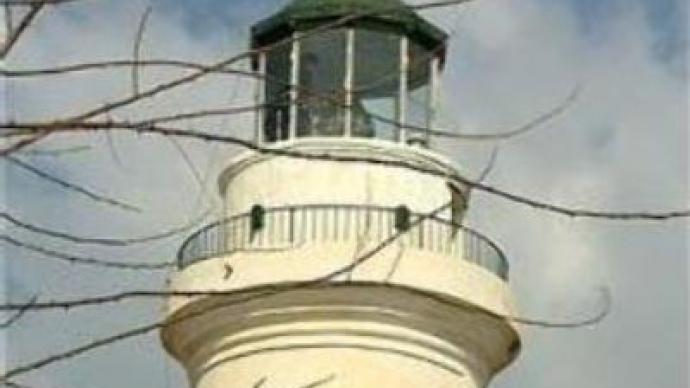New oil pipeline bypassing the Bosphorus to diversify energy supplies to Europe

The governments of Russia, Greece and Bulgaria have signed a deal to build a major pipeline linking the Caspian Sea to energy customers in the EU. The joint project is part of Russia's mission to find new ways of transporting oil and gas.
The 280-kilometre pipeline that will take Caspian oil to Europe has come at the right place and at the right time. As Russian President Vladimir Putin pointed out, creating new cheaper routes to transport Russian oil is not simply an economic matter but also strategy.“We think reliable access to energy resources is one of the main conditions for the stable and dynamic development of our civilisation. It can be ensured only by partnership between all the countries that includes producers, consumers and transit states. I am convinced that the energy potential of Russia and the advantageous geographical position of both Greece and Bulgaria open great prospects for our co-operation. It forms new opportunities for creating major regional transit clubs in Greece and Bulgaria for Russian energy resources to be transported to the European and other world markets,” said Vladimir Putin.As oil production in the Caspian Sea region is growing, the existing routes can’t take any more. If today Russian oil goes from Novorossiysk on the Black Sea through the Bosphorus and the Dardanelles, the new route lets Russian tankers unload in Burgos, Bulgaria. From there the pipeline will carry the oil to Alexandropoulos in Greece. While for Russia the project is mainly about diversification of its oil export routes and security of supplies, Greece and Bulgaria have their own ambitions.“We're talking about a project which is extremely beneficial for all the countries involved. For Greece it means the creation of new jobs and an influx of investments. Both Greece and Bulgaria will appear on the world energy map,” Greek Prime Minister Costas Karamanlis stressed. For Greece it means the creation of new jobs and influx of investments. As a result, both Greece and Bulgaria will appear on the energy map. Greece and Bulgaria will receive 24,5 % of the pipeline shares each. Russia will get 51%, shared among companies Transneft, Rosneft and Gazpromneft. The construction will cost $US 1 BLN. With the three leaders stressing the huge importance of the Burgos-Alexandropoulos pipeline compared to its modest length, one can clearly see sometimes the size doesn’t matter. But back in Alexandropoulos, where the pipeline will end, many feel the project is just too big for their small city.Meanwhile. the Greek government says the exact route of the pipeline has yet to be defined. The blueprint puts it next to the delta of the river Evros.Environmental groups say the mouth of Evros is a very sensitive area. They believe even small oil spills could be disastrous.“We have a unique ecosphere here. It’s a real crossroads for migratory birds. Here pelicans, storks, and swans stop over. We have more than 316 species from Africa, Europe and Asia. Even if the pipeline is relatively far, if there is a spill, the winds and underwater streams will bring the pollution to this area,” says environmentalist Athanasiadis Andreas.Today fishing is good in Alexandropoulos. But local fishermen are afraid tankers entering these waters and bringing alien organisms might alter the fragile sea life balance. “This pipeline is a danger for our business. Huge tankers could destroy the local sea fauna and flora. This place is the coast’s richest in fish. But we’re afraid the fish will leave. Hundreds of fishermen could lose their jobs,” said schooner owner Karavetis Panagiotis.Still, many Greeks trust Russian engineers. President Putin promised to use the most advanced technology to make the pipeline environmentally safe. The pipeline is expected to be put into operation as soon as 2009.
You can share this story on social media:












